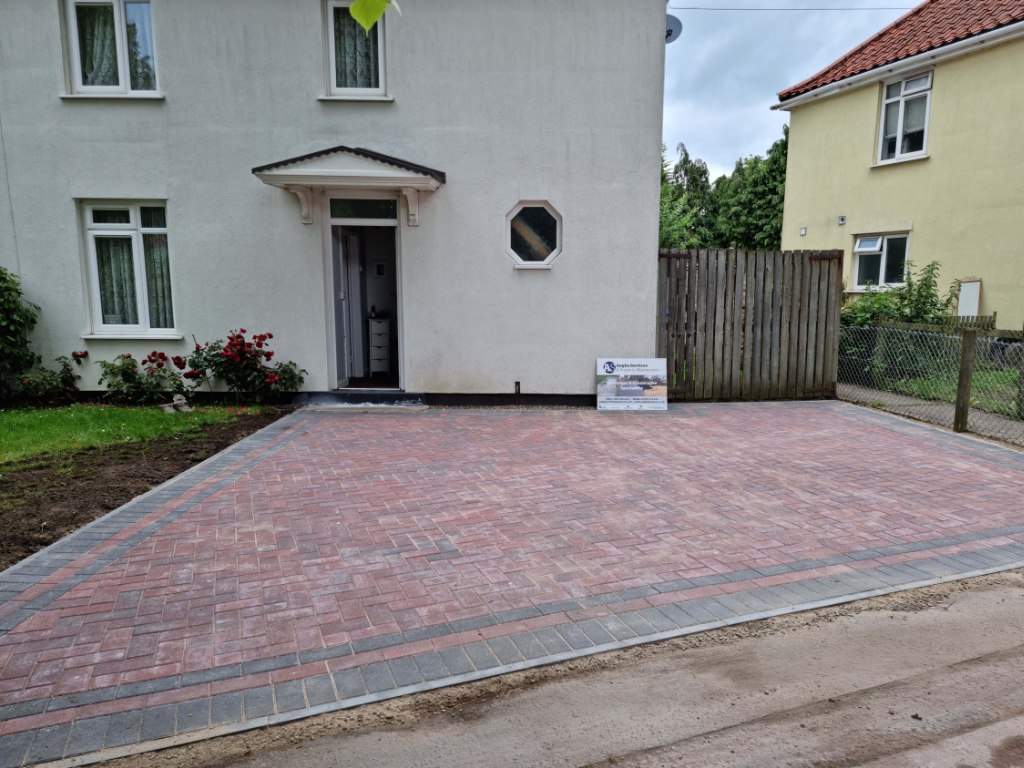What Causes Block Paving to Sink – and How a Pro Fixes It
Block paving is a popular and attractive choice for driveways across the UK, offering flexibility, durability and a wide range of finishes. However, one of the most common problems homeowners face with this type of surface is sinking—and if left unaddressed, it can not only ruin the appearance of your driveway but also create trip hazards and drainage issues.
At NS Driveways Godalming, we frequently carry out professional block paving repairs throughout Godalming, Surrey, helping property owners restore their driveways and prevent further deterioration. In this article, we look at the main causes of sinking block paving, and how a professional addresses the issue properly.
Common Causes of Sinking Block Paving
Understanding why block paving sinks is the first step in solving and preventing the problem.
1. Insufficient Sub-Base Preparation
The most common reason block paving sinks is due to poor groundwork. If the sub-base isn’t deep enough, or not compacted correctly, the weight of vehicles or even foot traffic can cause movement over time.
- Sub-base should typically be 100–150mm thick
- MOT Type 1 aggregate must be properly compacted in layers
- Uneven or rushed groundwork results in weak spots
Without this solid foundation, the blocks above are vulnerable to shifting and settling.
2. Inadequate Edge Restraints
Edge restraints help to hold the paving in place. If these aren’t correctly installed or become loose over time, the blocks can start to move outwards, causing sections to collapse or sink inward.
- Lack of edge restraints causes lateral movement
- Poor jointing or cracked kerbs weaken the structure
- Water ingress at the edges accelerates the issue
Edge stability is crucial for keeping the entire surface aligned and intact.
3. Water Ingress and Drainage Issues
Water is one of the most destructive elements for any driveway. If drainage hasn’t been properly planned, water can collect underneath the paving, eroding the sub-base and washing away fine materials.
- Blocked or missing drainage points
- Water pooling due to incorrect falls
- Erosion of bedding sand and sub-base over time
We often find that sunken areas correspond with drainage weak spots or nearby downpipes.
4. Heavy or Concentrated Vehicle Loads
Block paving is typically rated for domestic vehicle traffic. When heavier vehicles (such as delivery vans or campervans) regularly park on the same spot, it puts additional stress on that area, especially if the sub-base wasn’t designed to take the load.
- Repeated load can cause compression and dip formation
- Surface deformation often worsens in wet conditions
- Reinforcement may be needed for driveways with higher usage demands
How a Professional Fixes Sunken Block Paving
Repairing sinking block paving correctly requires more than just lifting and relaying the affected blocks. A professional will always start with a full inspection to determine the extent and cause of the problem.
The step-by-step process includes:
1. Lifting the affected area
- Blocks are carefully removed to preserve the pattern and avoid breakage
- Removed blocks are cleaned and set aside for reuse
2. Excavating and inspecting the sub-base
- Old or eroded sub-base is taken out
- Depth and quality of original foundation is assessed
3. Rebuilding the base properly
- New MOT Type 1 sub-base laid in layers and compacted
- Sharp sand bedding reinstalled to the correct level
4. Replacing blocks and compacting
- Original or matching blocks re-laid in the correct pattern
- Area is vibrated using a plate compactor to lock the surface
- Kiln-dried sand is brushed into joints to stabilise and seal
At NS Driveways Godalming, we ensure every repair is built to last, addressing the root cause—not just the visible damage.
Preventing Future Sinking
In addition to repairs, it’s wise to take steps that prevent further sinking.
Maintenance tips include:
- Keep your driveway clear of blocked drains or gutters
- Rinse away silt or debris that may disrupt the bedding sand
- Avoid parking heavy vehicles in the same position continuously
- Look out for early signs of edge movement or joint erosion
We also recommend periodic professional inspections for larger driveways or those with a history of settling.
Conclusion
Sinking block paving may seem like a surface-level issue, but the underlying causes often stem from poor installation, inadequate support, or water damage. A professional approach ensures the problem is fully corrected and helps maintain the integrity and appearance of your driveway for years to come.
If you’ve noticed dips, uneven surfaces, or pooling water on your driveway in Godalming, Surrey, contact NS Driveways Godalming. Our expert team specialises in reliable block paving repairs, ensuring your driveway looks great and performs perfectly—now and into the future.
Call us on: 01483 967 393
Click here to find out more about NS Driveways Godalming
Click here to complete our contact form and see how we can help with your driveway needs.

